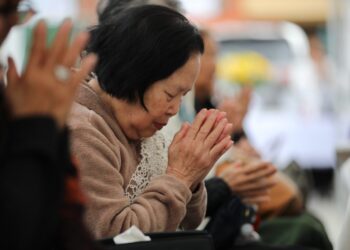Anxiety is the most common psychological disorder affecting adults in the U.S.
In older people, it’s associated with considerable distress, as well as ill health, diminished quality of life and elevated rates of disability.
Yet, when the U.S. Preventive Services Task Force, an independent, influential panel of experts, suggested last year that adults be screened for anxiety, it left out one group — people 65 and older.
The major reason the task force cited in draft recommendations issued in September was that “the current evidence is insufficient to assess the balance of benefits and harms of screening for anxiety” in all older adults. (Final recommendations are expected later this year.)
The task force noted that questionnaires used to screen for anxiety may be unreliable for older adults. Screening entails evaluating people who don’t have obvious symptoms of worrisome medical or psychological conditions.
“We recognize that many older adults experience mental health conditions like anxiety” and “we are calling urgently for more research,” said Lori Pbert, associate chief of the preventive and behavioral medicine division at the University of Massachusetts Chan Medical School.
Pbert is also a former task force member who worked on the anxiety recommendations.
This “we don’t know enough yet” stance doesn’t sit well with some experts who study and treat seniors with anxiety.
Dr. Carmen Andreescu, an associate professor of psychiatry at the University of Pittsburgh, called the task force’s position “baffling” because “it’s well established that anxiety isn’t uncommon in older adults and effective treatments exist.”
Dr. Helen Lavretsky, a psychology professor at UCLA, agreed.
“I cannot think of any danger in identifying anxiety in older adults,” Lavretsky said, “especially because doing so has no harm and we can do things to reduce it.”
In a recent editorial in JAMA Psychiatry, Andreescu and Lavretsky noted that…
Read the full article here







